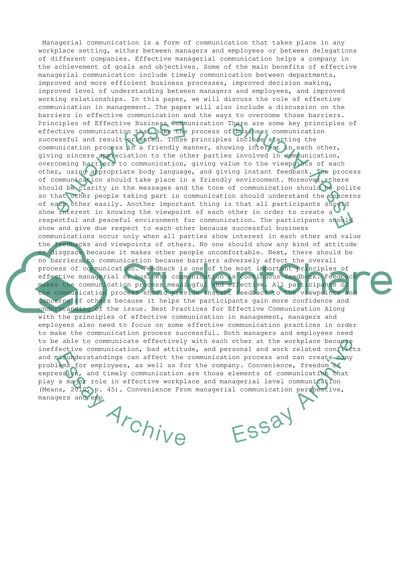Cite this document
(“ROLE OF EFFECTIVE COMMUNICATION IN MANAGEMENT Essay”, n.d.)
ROLE OF EFFECTIVE COMMUNICATION IN MANAGEMENT Essay. Retrieved from https://studentshare.org/management/1476798-1-explain-what-is-meant-by-effective-managerial-communication-and-identify-the-role-of-communication-in-management-show-in-yo
ROLE OF EFFECTIVE COMMUNICATION IN MANAGEMENT Essay. Retrieved from https://studentshare.org/management/1476798-1-explain-what-is-meant-by-effective-managerial-communication-and-identify-the-role-of-communication-in-management-show-in-yo
(ROLE OF EFFECTIVE COMMUNICATION IN MANAGEMENT Essay)
ROLE OF EFFECTIVE COMMUNICATION IN MANAGEMENT Essay. https://studentshare.org/management/1476798-1-explain-what-is-meant-by-effective-managerial-communication-and-identify-the-role-of-communication-in-management-show-in-yo.
ROLE OF EFFECTIVE COMMUNICATION IN MANAGEMENT Essay. https://studentshare.org/management/1476798-1-explain-what-is-meant-by-effective-managerial-communication-and-identify-the-role-of-communication-in-management-show-in-yo.
“ROLE OF EFFECTIVE COMMUNICATION IN MANAGEMENT Essay”, n.d. https://studentshare.org/management/1476798-1-explain-what-is-meant-by-effective-managerial-communication-and-identify-the-role-of-communication-in-management-show-in-yo.


